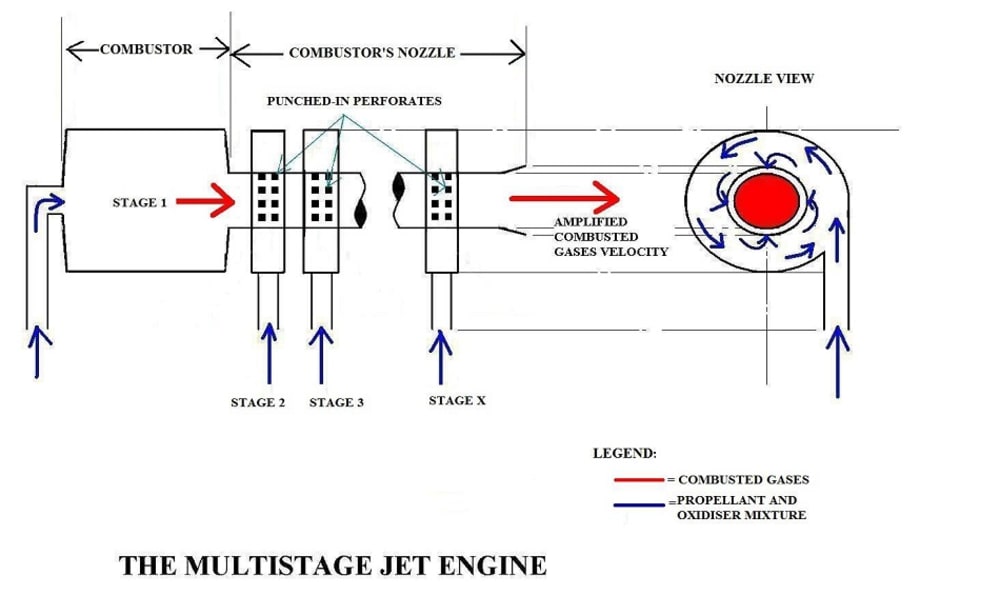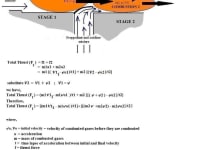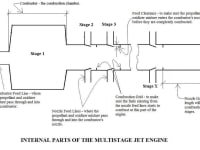My Multistage Jet Engine design is like two or more combustion chambers or combustors connected in series, each combustion chamber or combustor represents 1 (one) stage each whose fuels combust all together at the same time so that the velocities of the combusted gases are amplified by providing the combusted gases an initial velocity equal to the velocity of the combusted gases that are pushing their way through from the previous stage. The total thrust of the engine is equal to the sum of the combusted gases that are exiting through the mouth of the combustor's nozzle whose velocities were amplified in direct proportion to the number of their respective stage from where they originated. From Newton's Second Law of motion stating that "FORCE=(MASS)(ACCELERATION)", suggesting that if the mass of an object is constant, the net force from an object is directly proportional to its acceleration, which means greater combusted gases velocity means greater thrust force.
Basing upon the supplemented illustrations, the arrangement of combustions inside the engine suggests that the velocity of combusted gases are amplified in each stage added to the engine and the total amplification depends upon the total number of stages added to the engine. In application, for small amount of fuels combusted per stage we can add as many stages as we want so that we can amplify the velocity of combusted gases even up to 300,000 km/sec or much faster than that velocity without limit as much as the materials used as the combustor of the engine are considered.
Whether it is turbine-based or not, air breathing or none-air breathing, my idea the multistage jet engine is an upgrade of current jet engine combustor designs to increase the thrust of jet engines many times fold greater through amplification while consuming less or equal amount of fuel against its conventional jet engine counterpart. One notable theoretical advantage for this kind of engine is that the engine can operate at lower temperature because the amount of fuels fed to the engine are divided into small equal parts and combusted in the different parts of the combustor, in that way the temperature of heat generated by the engine are reduced to certain amount of lower value because the dissipating heat came from small amount of fuels that are combusted in the different parts of the combustor, furthermore, the presence of liquid propellant and gaseous oxidizer can be routed around to serve as coolant of the engine. Also, unlike an afterburner where additional fuels are fed after a turbine, my multistage jet engine design consumes all fuels at the combustor's stage only but without further introducing additional fuels to the engine in order to increase its thrust and the resulting amplifications are done before a turbine, thus, making the engine more efficient in driving the turbine.
In summary, the engine is a combination of gradual increase in both nozzle pinching and velocity summing amplification technique per stage.
The working model is under construction for demonstration.
Like this entry?
-
About the Entrant
- Name:Role Alvarez
- Type of entry:individual
- Software used for this entry:Ms Paint
- Patent status:none








